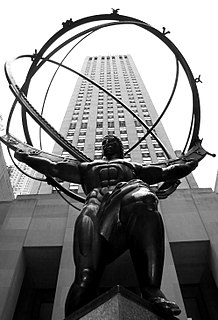A Quote by James Bovard
It is unfortunate that Americans are no longer aware of what the constitution says and what their rights are. Because of that, we are often very passive about what happens when the government violates those rights.
Quote Topics
Related Quotes
I believe all Americans are born with certain inalienable rights. As a child of God, I believe my rights are not derived from the constitution. My rights are not derived from any government. My rights are not denied by any majority. My rights are because I exist. They were given to me and each of my fellow citizens by our creator, and they represent the essence of human dignity.
Gun rights advocates - many whom also believe that the US constitution is divinely inspired and that the rights it enumerates are God-given - face a conundrum. Their very insistence that the government not restrict guns in public spaces or limit their sales in any way also obviously inhibit other Americans' rights as covered by the US constitution.
The Constitution was written to protect individual freedom and limit the ability of the government to encroach upon it. The liberals don't like that. The Democrats are very unhappy. The Constitution limits government too much. So they want to rewrite it, have a second Bill of Rights. So they want a new Bill of Rights that spells out what government can do instead of a Bill of Rights that tells government what it can't do.
So what's the difference between republican and democratic forms of government? John Adams captured the essence of the difference when he said, 'You have rights antecedent to all earthly governments; rights that cannot be repealed or restrained by human laws; rights derived from the Great Legislator of the Universe.' Nothing in our Constitution suggests that government is a grantor of rights. Instead, government is a protector of rights.
Look at the Israel-Palestine conflict, for example. If you look at a map from 1947 to now, you'll see that Israel has gobbled up almost all of Palestinian land with its illegal settlements. To talk about justice in that battle, you have to talk about those settlements. But, if you just talk about human rights, then you can say, "Oh, Hamas violates human rights," "Israel violates human rights." Ergo, both are bad.
We, the People of this country, have no unalienable rights... all our rights are subject to modification... the Constitution of the United States of America is nothing more than a piece of paper and... our government should not be restrained by the Constitution because our government can do good things for people.
In short, it is the greatest absurdity to suppose it in the power of one, or any number of men, at the entering into society, to renounce their essential natural rights, or the means of preserving those rights; when the grand end of civil government, from the very nature of its institution, is for the support, protection, and defence of those very rights; the principal of which, as is before observed, are Life, Liberty, and Property.
There's this big debate that goes on in America about what rights are: Civil rights, human rights, what they are? it's an artificial debate. Because everybody has rights. Everybody has rights - I don't care who you are, what you do, where you come from, how you were born, what your race or creed or color is. You have rights. Everybody's got rights.
If they are incorporated into the Constitution, independent tribunals of justice will consider themselves in a peculiar manner the guardians of those rights; they will be an impenetrable bulwark against every assumption of power in the legislative or executive; they will be naturally led to resist every encroachment upon rights expressly stipulated for in the Constitution by the declaration of rights.


































